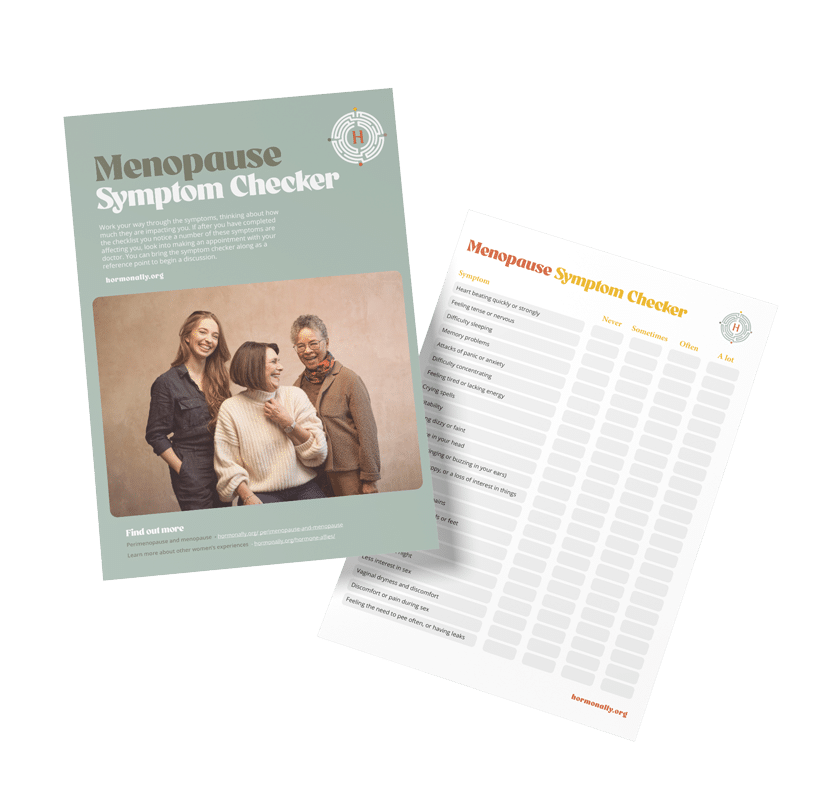Menopause marks the end of the reproductive phase of your life – the time where you could theoretically get pregnant. Menopause happens because over time your ovaries stop producing eggs, which in turn, causes your periods to stop.
No eggs or cycles means that your body stops producing the same amount of the hormones needed to support a pregnancy and your levels of estrogen, progesterone (also called progestin) and testosterone drop.
While many of us are not the biggest fans of our periods, having a monthly cycle does mean we continue to produce sex hormones associated with many important mental and bodily functions. When we produce less of these hormones, our bodies notice the difference and around 80% of us experience menopausal symptoms as a result of our hormone levels dropping.
While there isn’t anything you can do to stop menopause from happening, understanding more about the process and what your body needs during this transition will make it a lot easier to manage.
There’s no specific age at which menopause will happen, but the average age in the US is 52. However, many people experience menopausal symptoms for years before their periods completely stop. This time in your life is called perimenopause. The clue to this one is in the name, as ‘peri’ means before.
Menopause can be divided into 3 main stages:
Perimenopause: The time before menopause when you begin experiencing symptoms including changes to your period.
Menopause: The point in time when you are no longer having periods. After you experience 12 months in a row without a period you will be able to say you have ‘gone through menopause’.
Post-menopause: The remainder of your life after menopause.
When your hormone levels start to change it’s important to think about how to take care of your mind and body. Your eating habits, your activity levels, your stress levels and your quality of sleep can all influence how severely you experience menopausal symptoms. So, it’s worth making some changes to address lifestyle factors, as lower levels of sex hormones in your body can have a big impact. Adjustments can make a significant difference to the way that you feel.
The good news is there are treatments available that will help to improve your symptoms. Hormone Therapy (HT) which helps to address your shifting hormone levels, will help to ensure you don’t feel the effects of menopause as intensely. HT also offers a number of benefits when it comes to healthy aging. There are lots of options to explore when it comes to HT, so be sure to read our resource on treatment options for more information.
Interventions such as Cognitive Behavioral Therapy (CBT) have also been found to help address symptoms, particularly when it comes to the psychological shifts you may experience.
So that was a quick overview, but there’s loads more to get into – keep scrolling to find out more about how to manage menopause.





